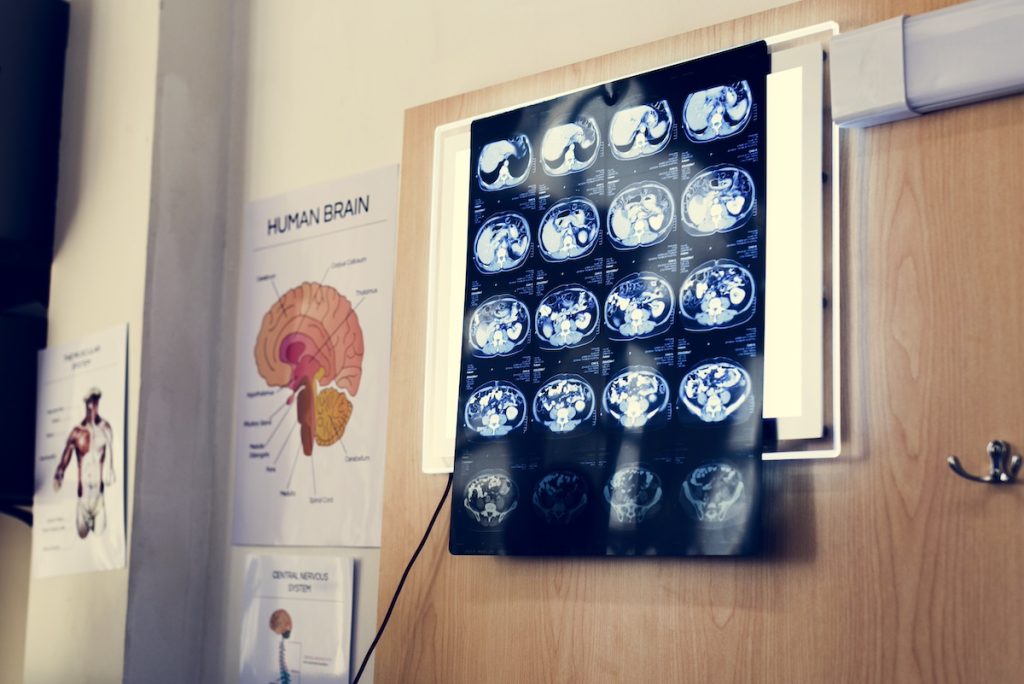
Recognizing PTSD: Signs, Criteria, and Causes
June 13, 2024
Can PTSD Go Away? Understanding Healing and Treatment
June 20, 2024Post-Traumatic Stress Disorder (PTSD) is a severe mental health condition that arises after experiencing or witnessing a traumatic event. The effects of PTSD extend beyond emotional and psychological symptoms, significantly impacting brain function and structure. This blog explores how PTSD affects the brain, comparing the brain of someone with PTSD to that of a non-affected individual and examining the overall impact on brain function.
How Does PTSD Affect the Brain?

PTSD alters the brain’s structure and function, particularly in regions involved in emotion regulation, memory, and fear responses. Key areas impacted include the amygdala, hippocampus, and prefrontal cortex.
1. Amygdala
The amygdala is crucial for processing emotions, especially fear. In individuals with PTSD, the amygdala becomes hyperactive. This heightened activity contributes to the intense fear and anxiety experienced by those with PTSD. The amygdala’s overactivity can lead to exaggerated startle responses and hypervigilance, common symptoms of PTSD.
2. Hippocampus
The hippocampus is responsible for memory formation and retrieval. PTSD often results in a reduction in hippocampal volume. This shrinkage impairs the ability to distinguish between past and present experiences, causing intrusive memories and flashbacks. The hippocampus’s reduced size also contributes to difficulties forming new memories and accurately recalling details of the traumatic event.
3. Prefrontal Cortex
The prefrontal cortex is critical in regulating emotions and executive functions, such as decision-making and impulse control. PTSD can lead to decreased activity in the prefrontal cortex, reducing its ability to moderate the amygdala’s fear responses. This imbalance between the prefrontal cortex and the amygdala exacerbates the emotional dysregulation seen in PTSD.
PTSD Brain vs. Normal Brain
The differences between a brain affected by PTSD and a normal brain are striking. These changes are evident in both brain structure and function.
Structural Differences
- Amygdala: Increased size and activity in the amygdala of individuals with PTSD compared to those without the disorder.
- Hippocampus: Decreased volume in the hippocampus, leading to memory and emotional regulation impairments.
- Prefrontal Cortex: Reduced volume and activity in the prefrontal cortex, affecting decision-making and impulse control.
Functional Differences
- Emotional Regulation: Individuals with PTSD exhibit heightened emotional responses due to the overactive amygdala and underactive prefrontal cortex.
- Memory Processing: The impaired hippocampus affects the ability to process and differentiate between memories, causing intrusive thoughts and flashbacks.
- Stress Response: PTSD alters the brain’s response to stress, often leading to an exaggerated physiological response to stressors that would not affect individuals without PTSD.
PTSD and Brain Function
PTSD profoundly impacts various brain functions, influencing how individuals think, feel, and behave. Understanding these changes is essential for grasping the full extent of the disorder’s effects.
1. Memory and Concentration
The hippocampus’s impairment affects memory, making it challenging for individuals with PTSD to form new memories or recall specific details of past events. This can lead to confusion and difficulty concentrating, impacting daily activities and overall quality of life.
2. Emotional Regulation
With the prefrontal cortex’s diminished function, individuals with PTSD struggle to regulate their emotions effectively. This leads to mood swings, irritability, and difficulty managing stress. The overactive amygdala amplifies fear and anxiety responses, making it hard for individuals to feel safe even in non-threatening situations.
3. Fear and Hypervigilance
The heightened activity in the amygdala results in an increased state of hypervigilance, where individuals are constantly on alert for potential threats. This persistent fear and anticipation can lead to sleep disturbances, fatigue, and an overall sense of being on edge.
4. Impulse Control and Decision-Making
The reduced activity in the prefrontal cortex affects impulse control and decision-making abilities. Individuals with PTSD may engage in risky behaviors, have trouble making decisions, and struggle with planning and organizing tasks.
Treatment and Brain Recovery
Understanding how PTSD affects the brain highlights the importance of seeking appropriate treatment. Effective treatments can help mitigate these changes and improve brain function.
1. Psychotherapy
- Cognitive Behavioral Therapy (CBT): CBT helps individuals reframe negative thoughts and develop healthier coping mechanisms.
- Exposure Therapy: This therapy involves gradual exposure to trauma-related stimuli to reduce fear and anxiety responses.
- Cognitive Processing Therapy (CPT): CPT helps patients learn to evaluate and change upsetting thoughts and beliefs related to the trauma. CPT often involves detailed journaling, writing a trauma story, and looking at evidence from multiple viewpoints.
- Eye movement desensitization and reprocessing (EMDR): EMDR is a psychotherapy that can help people process distressing memories, thoughts, and feelings related to trauma. During treatment, which usually consists of 6 to 12 sessions, the therapist may guide the patient through eye movements while they focus on a target memory.
2. Medications
- Antidepressants: Selective serotonin reuptake inhibitors (SSRIs) can help manage symptoms of depression and anxiety associated with PTSD.
- Prazosin: Often used to reduce nightmares and improve sleep in individuals with PTSD.
3. Lifestyle Changes
- Regular Exercise: Physical activity can help reduce stress and improve overall mental health.
- Mindfulness and Relaxation Techniques: Meditation and yoga can help regulate emotions and reduce stress.
In conclusion, PTSD profoundly affects the brain, altering its structure and function in ways that impact emotional regulation, memory, and decision-making. Recognizing these changes is crucial for understanding the disorder and seeking appropriate treatment. With the proper support and interventions, individuals with PTSD can manage their symptoms and improve their quality of life.
____________________________________________________________________________
Looking for treatment for an eating disorder, anxiety, depression, trauma, or postpartum mood disorder?
Evolve Counseling Services is a specialized team of Licensed Therapists providing treatment in Paoli.



